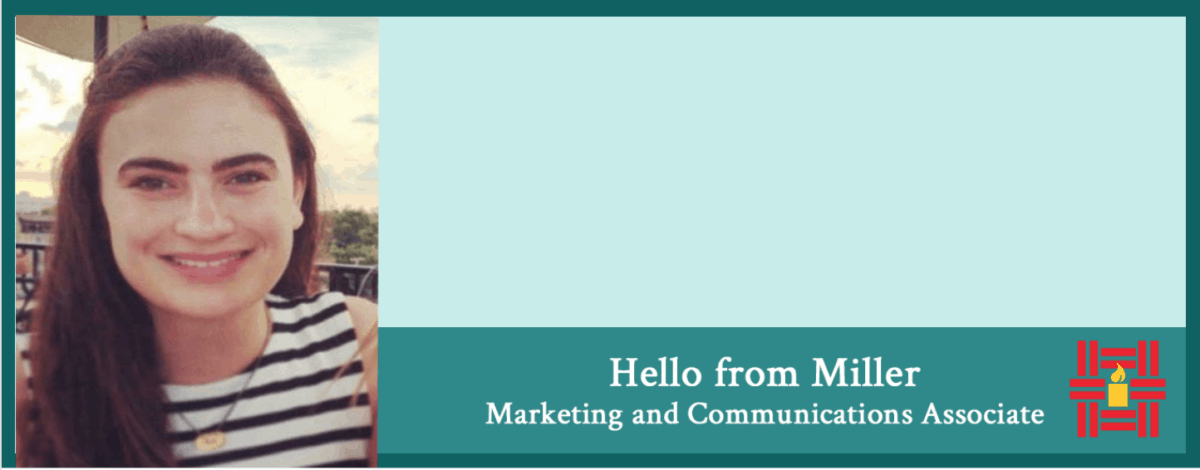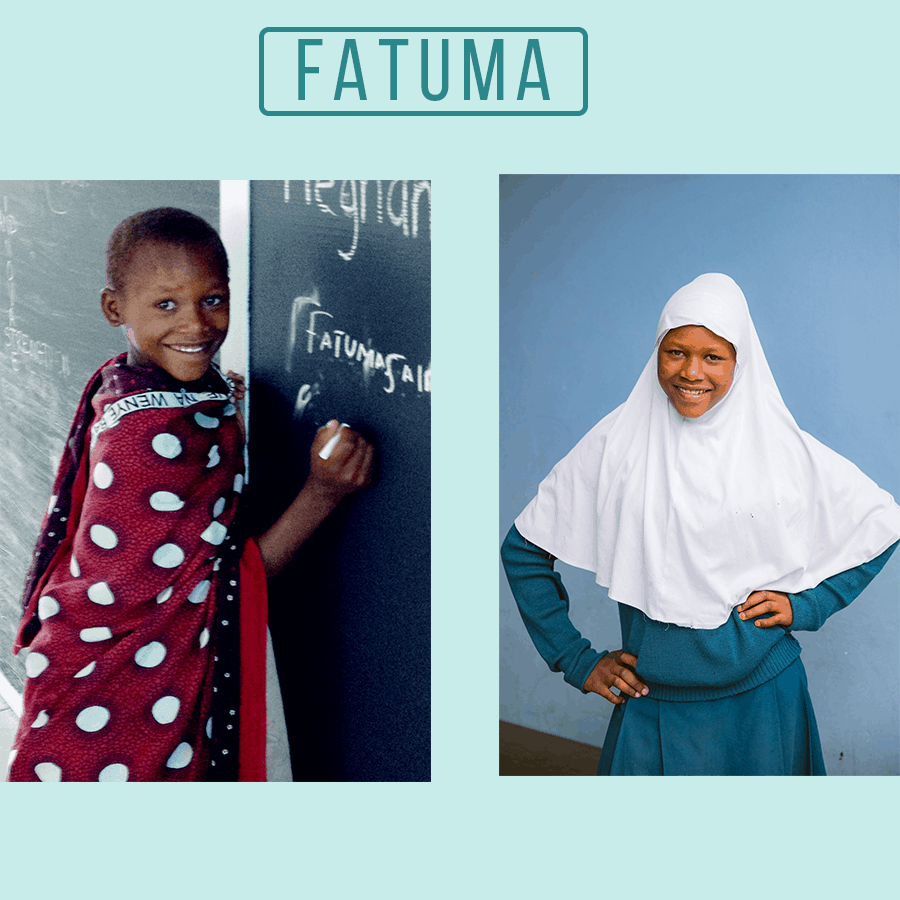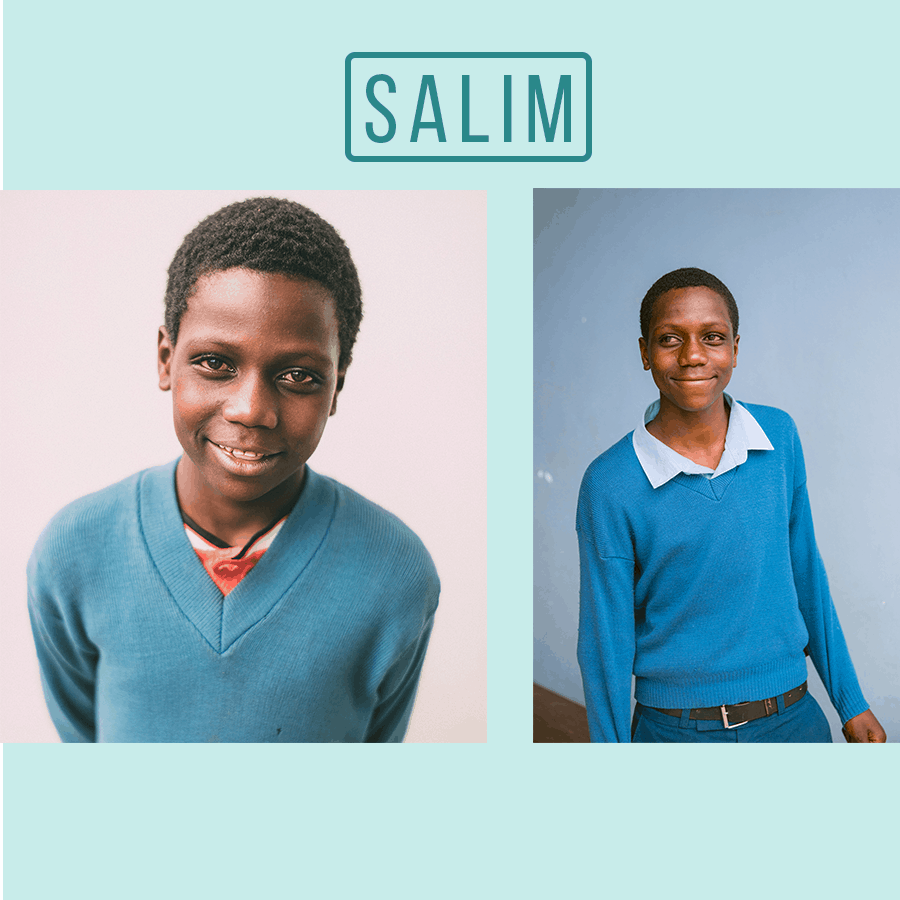
September 13, 2019
Hongera sana (huge congratulations) graduates!
Asimwe’s favorite subject in school is art and in her free time, she loves to study fashion. She dreams of becoming a fashion designer one day. Nisima’s favorite subject in school is social studies and she, like her twin sister Asimwe, hopes to be a designer in the future. Tumaini loves science and aspires to be a doctor in the future. Salim dreams of a career as a mechanical engineer. Fatuma’s favorite subject is physics, she absolutely adores reading, and she wants to pursue a career as a pilot. These individuals, like millions of adolescents in Tanzania, have hopes, dreams, and aspirations for their lives and futures.
Today, Asimwe, Nisima, Salim, Tumaini, and Fatuma are all fortunate to be one step closer to achieving their dreams. Tomorrow, September 14th, we are delighted to see five of our Class 7 students graduate from primary school (lower school). This day of celebration represents growth, progress, accomplishment, and the promise to continue to learn in secondary school. The graduates, Asimwe, Nisima, Fatuma, Salim, and Tumaini, have worked diligently to reach this point and we are inviting our entire TFFT community to celebrate with them. This accomplishment may seem like a simple right of passage to many, but in the reality of what it is like to be a vulnerable child in Tanzania, this achievement is enormous and exceptional.

Completing primary school is a milestone that not many Tanzanian students reach, and thus, transitioning to secondary school is unique. In Tanzania, student enrollment is highest in primary school, with an 86% enrollment rate. In secondary school, enrollment drops dramatically, with only 33% enrollment, a shocking drop in enrollment of more than half the students. Nearly two million Tanzanian children between the ages of 7 and 13 years are out-of school. Nearly 70% of children aged 14-17 years are not enrolled in secondary education. Only 3.2% of students remain in school for the final two years of schooling. View these statistics here, and here.

With our students up against challenging odds, we are extremely proud to report that since TFFT was founded in 2006, 100% of our scholars graduate from primary school and transition to secondary school. This percentage reflects the impact and influence of our approach not only on the scholars that we support, but on the Tanzanian educational landscape as a whole.
Completing primary school creates a solid springboard for the growth of these scholars. The long-term benefits of receiving a high-quality education are widely documented. Quality education has the ability to lift communities out of poverty and boost a country’s economic development. Skills fostered and developed in primary school, such as linguistic, cognitive, social, emotional, and regulatory skills, contribute to future success, both within and outside of the classroom.
Combatting vulnerability through education is our mission because of education’s transformative power. We celebrate each milestone for the following reasons:
- One additional year in school increases a student’s income by up to 10%
- The cost of 250 million children not learning is equivalent to a loss of US $129 billion per year
- Each year of education reduces the risk of conflict by around 20%
- One additional year of schooling can increase a woman’s income by 10to 20%
- Women with post-primary education are five times more likely to be educated about HIV/AIDS
- If students received two more years of education, 60 million people would be lifted out of poverty
- 420 million people would be lifted out of poverty if they received a secondary education, reducing the number of people living in poverty by more than half
- Literate individuals are more likely to be involved in the democratic process and exercise their civil rights
- Completing secondary school strongly improves an individual’s health, employment, and earnings
(Global Partnership for Education data here)
A number of barriers prevent Tanzanian students from transitioning to secondary school. Large student to teacher ratios in primary schools, teacher retention rates, school fees, inadequate supply of learning materials, inequitable access, inadequate toilet facilities, high cost and inefficient resource allocation within the education sector, as well as substantial constraints on public resources contribute to a substantial learning deficit in Tanzania. The quality of education and learning outcomes of students are concerns in Tanzania and insufficient quality is often linked to drop-out rates, according to a USAID study. Even students who are enrolled in school do not often achieve foundational learning outcomes, such as literacy, numeracy, and life skills, which are integral to future success and performance. Results from the Tanzanian 2014 primary school leaving examinations demonstrated that a mere 8% of Grade 2 students could read, only 8% could add or subtract, and under 0.1% had high life skills ability.

TFFT works with local partners and stakeholders to improve the quality of education by developing the skills of teachers to support not only our scholars, but all students within the classroom. Our Teacher Training Program enhances teachers’ capacity to deliver quality education and ensures completion of education for students. TFFT is unique because we believe not only in the importance of education, but in the importance of quality education to ensure success. With 45% of its population under the age of 15, Tanzania is a young country hungry for learning opportunities.
For vulnerable populations, one of the largest educational challenges is equity. Vulnerable children are most likely to drop out of school or never attend school. Tanzanian children from the poorest families are three times less likely to attend primary school than those students from wealthier families. TFFT works to ensure that the most vulnerable children within Tanzanian society are able not only to access education but to thrive in their learning environment. We understand that learning is a social process and does not happen in a vacuum. The circumstances of each student’s lives influences learning ability. Therefore, we believe in the importance of creating personalized learning environments for students so that we can strategically address every barrier for each student throughout their educational trajectory. Our Whole Child approach ensures the success of each scholar’s educational opportunity. We provide a Life Skills program, which teaches essential life skills, stretches students’ imaginations, fuels their dreams, and furthers personal understanding. TFFT also provides a Health and Psychosocial Wellbeing program as well as career coaching and mentorship for our scholars. Our Whole Child approach is individualized and focuses on the value and promise of each student. Our work reveals that vulnerable children thrive when schools and communities address their unique needs.
We support our scholars’ interests and desires and believe that success has many faces. We encourage our scholars to pursue a pathway that fosters their interest and ability. We seek to empower our scholars to become independent, compassionate adults, who are able to lead productive lives and are prepared to work collaboratively within their environments to address the issues facing their country. Formal education, as well as technical and vocational school, provides youth with the skills and expertise necessary for Sustainable Development in Tanzania.

We are overjoyed to celebrate the accomplishments of five young scholars, who have just completed a vital step in their development. Completing primary school and advancing to secondary school unlocks opportunity and has the power to transform the trajectory of their lives far into the future. Supporting these bright young scholars brings TFFT immense joy, and we are excited for their growth into the next leg of their educational journeys.
Do you have any advice for our graduates? Write to miller@thefoundationfortomorrow.org today and we will share your message at the ceremony tomorrow!